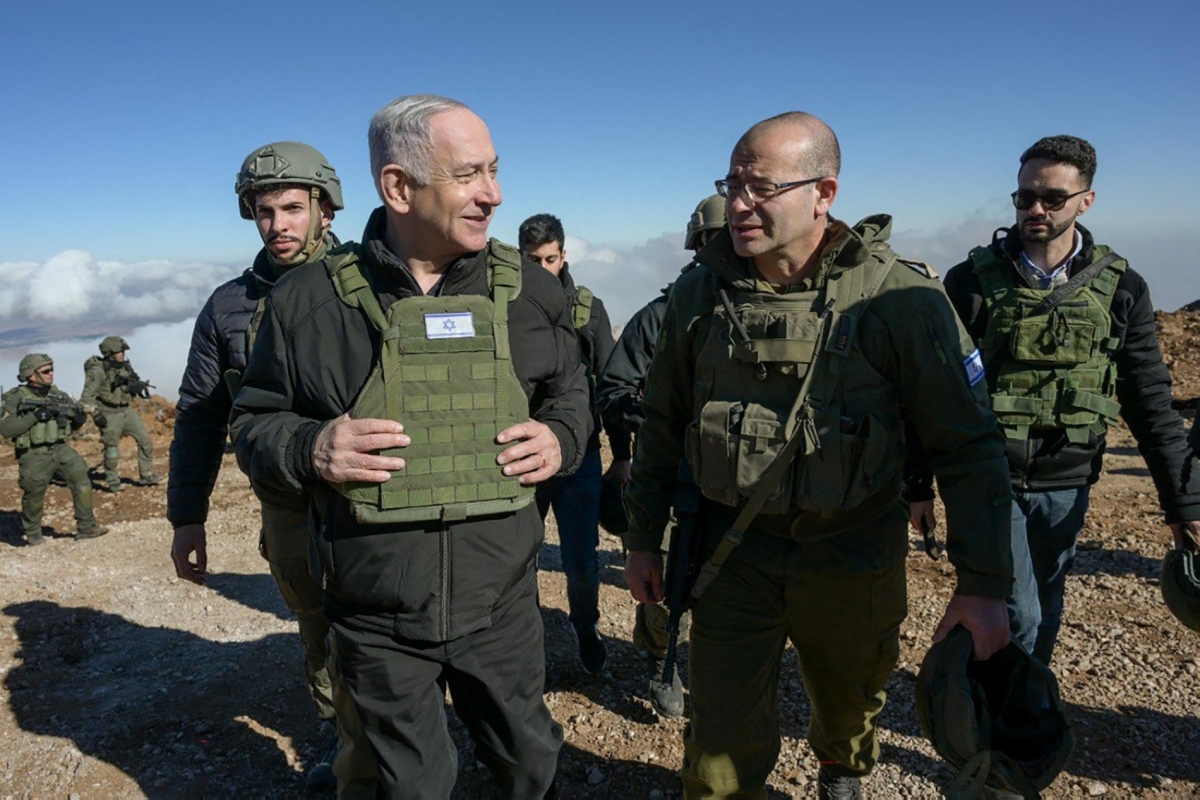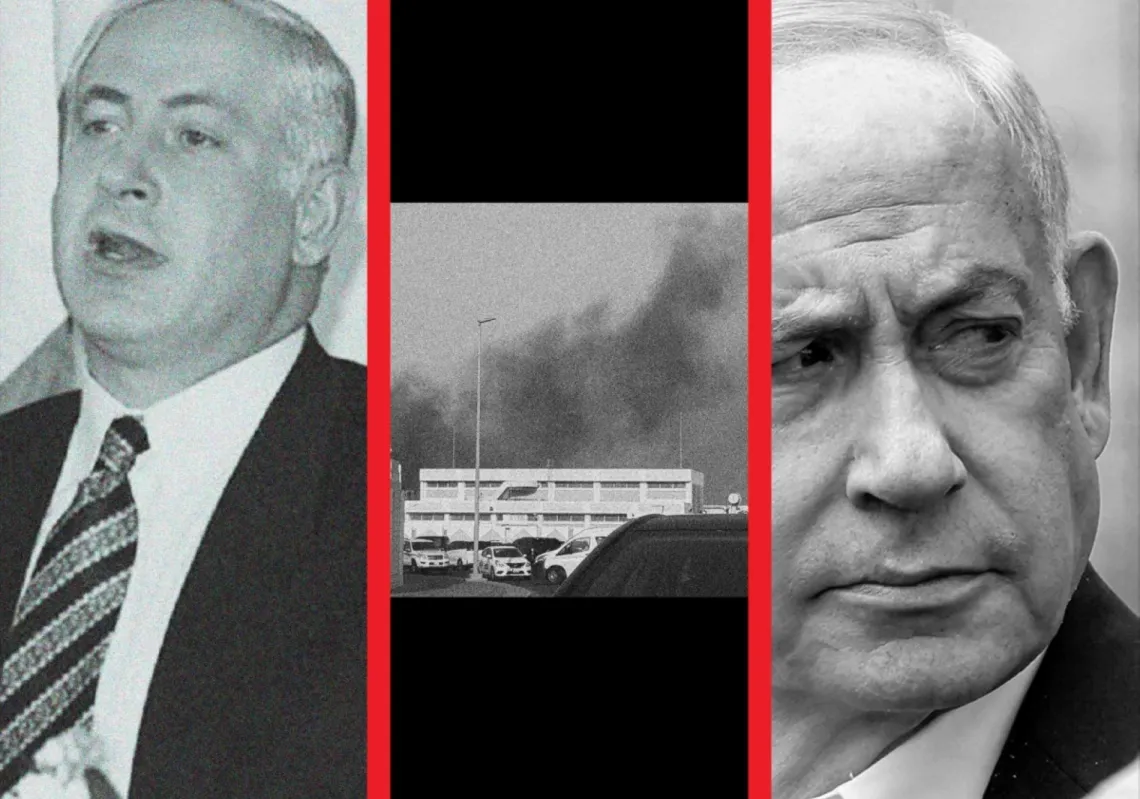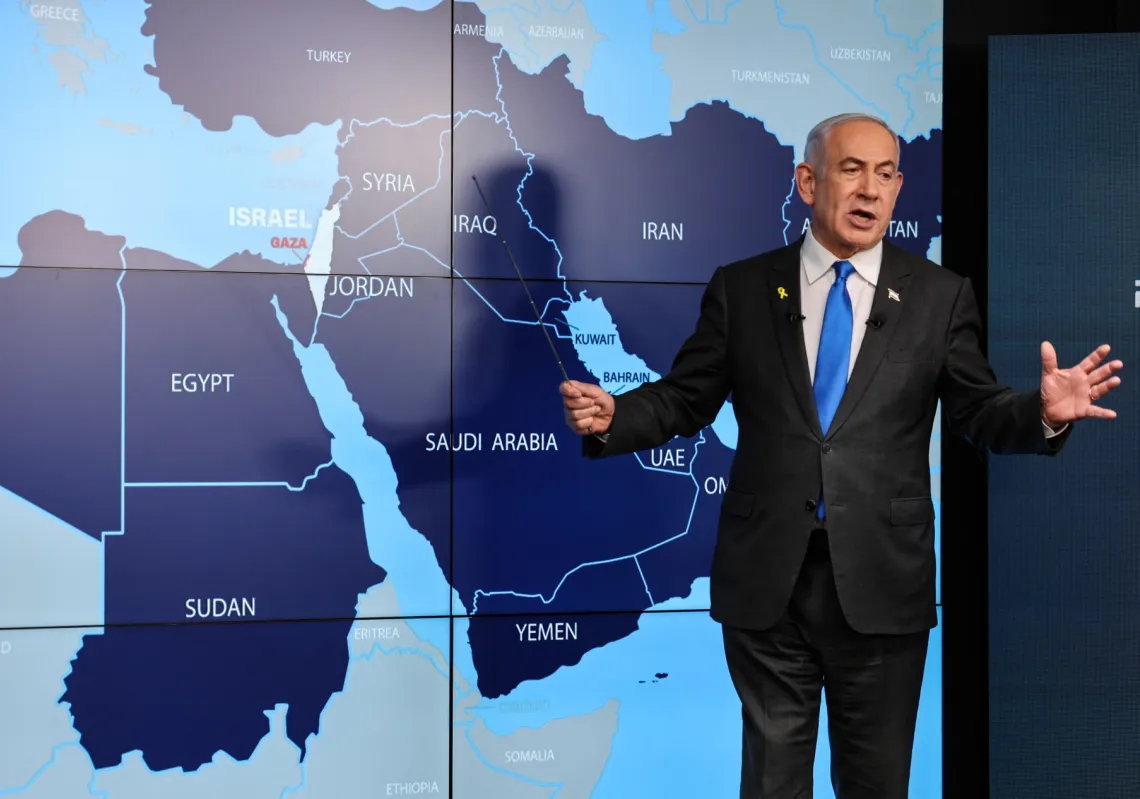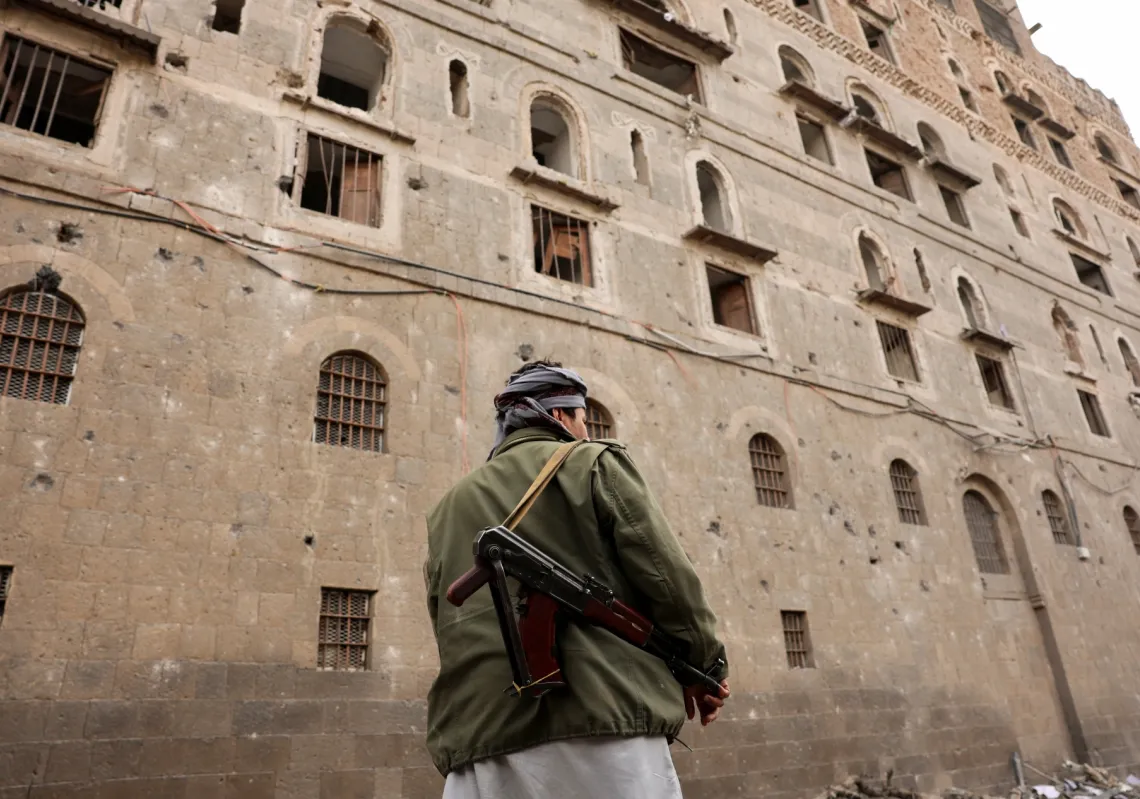Last month, Syrian-Israeli negotiations appeared to edge closer to a breakthrough. Following months of secret talks, Syria’s transitional authorities officially confirmed the first direct high-profile meeting with Israeli officials, held in Paris. Led by Foreign Minister Asaad al-Shaibani, the Syrian delegation engaged in US-brokered talks with Israeli officials to assess the prospects for a security arrangement aimed at de-escalating tensions.
The public acknowledgement of direct talks was unprecedented in recent memory, suggesting forward momentum. Speculation quickly followed that an agreement could be reached ahead of Interim President Ahmed al-Sharaa’s anticipated address at the UN General Assembly later this month.
Then, on August 26, an Israeli airstrike in rural Damascus killed several Syrian government soldiers—catching many observers off guard and casting doubt on the possibility of an imminent deal. Yet in retrospect, the strike wasn’t out of character. Prime Minister Benjamin Netanyahu has consistently asserted that regional peace can only be achieved through force. In that light, the latest surge in Israeli aggression reflects doctrine rather than deviation.
Despite reports of increased US pressure to finalise a deal ahead of the UN summit—and al-Shaibani’s unannounced meeting with Israeli officials in London this week—the outcome remains uncertain. While negotiations continue, the path toward de-escalation is becoming increasingly fragile.
Even if a deal is reached, it risks being more symbolic than substantive. A last-minute agreement driven by US urgency is unlikely to resolve the core structural issues behind the conflict and will remain highly susceptible to collapse under the weight of Netanyahu’s “peace through force” doctrine.
Syria's 'zero-problems' strategy
Since the fall of the Assad regime in December 2024, Syria’s transitional leadership under President Ahmed al-Sharaa has taken a markedly different approach to regional diplomacy. Al-Sharaa has made clear that Syria poses “no threat to anyone” and that his government will not pursue confrontation with Israel. His emphasis is on dialogue, sovereignty, and international oversight – not war.
This shift has opened space for a series of direct and indirect talks with Israel, brokered by countries including Azerbaijan and the United States. In Paris, Syrian Foreign Minister Asaad al-Shibani sat across from Israel’s Minister of Strategic Affairs, Ron Dermer – an unprecedented encounter publicly acknowledged by Damascus.
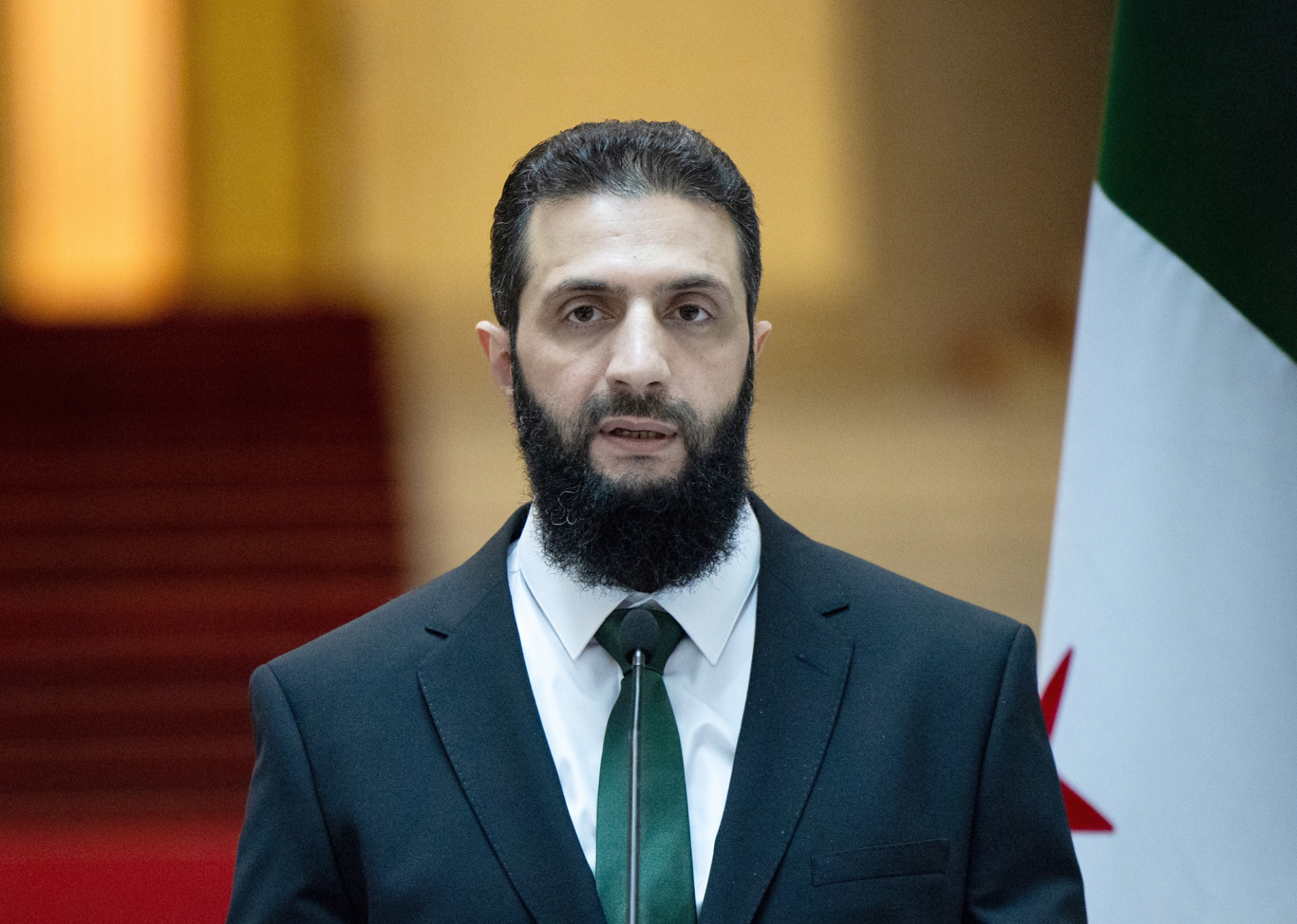
Read more: Ahmed Sharaa on Syria's 'zero-problems' strategy
Syria, under al-Sharaa, has articulated its negotiating position with clarity. For Damascus, the priority is restoring territorial integrity and preventing foreign interference in domestic affairs. Al-Sharaa has explicitly rejected the Abraham Accords model, which normalised relations between Israel and several Arab states without addressing deeper disputes. “Syria’s situation is different,” he said. “We have occupied land in the Golan Heights.”
For al-Sharaa, the immediate goal is to reach an agreement that revives the core principles of the 1974 disengagement accord, introduces confidence-building measures, and stabilises southern Syria. Only then, he argues, can negotiations move toward a more comprehensive settlement that ultimately addresses Israel’s occupation of the Golan Heights.
Aggression over engagement
Israel has not reciprocated this shift in tone. Since Assad’s ouster, it has expanded its attacks and presence on Syrian soil, seizing new territory and building military bases. It has also sought to shape Syria’s domestic affairs, most controversially by demanding a demilitarised zone in southern Syria.
For Damascus, such a demand strikes at the heart of sovereignty. Sweida, in particular, has emerged as a flashpoint. Syrian forces launched an offensive to assert control over the province in July, prompting fierce clashes and widespread violations. Israel retaliated with airstrikes that hit not only Syrian troops in the south but also sovereign institutions in the capital, including the Ministry of Defence building.
Despite this aggression, Damascus has continued its talks with Israel in an effort to avoid further escalation. Sending its top diplomat to Paris and publicly announcing the talks was al-Sharaa’s way of signalling his commitment to reaching a deal. Yet instead of reciprocating, Israel carried out several military operations in Syria, including an airstrike in rural Damascus that killed more than six Syrian soldiers.
This highlights the deep mismatch in how each side approaches the process: for Syria, talks are a means to reduce conflict and assert sovereignty; for Israel, they serve as an extension of its strategy of coercion.
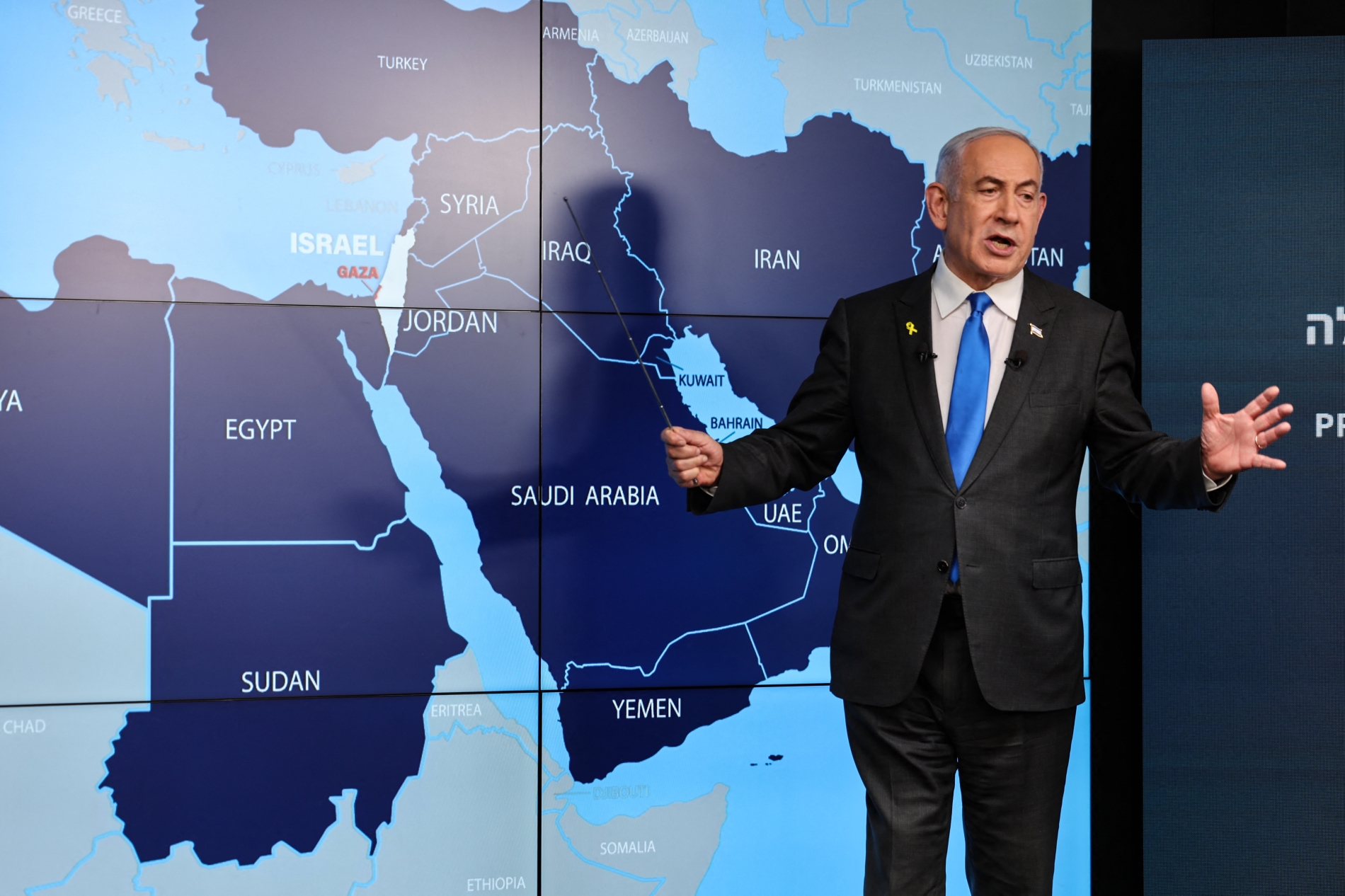
'Peace through force'
Netanyahu has been unambiguous about his worldview. From Gaza to Lebanon to Syria, he has consistently championed the doctrine of “peace through force.” His recent meeting with Druze leaders inside Israel echoed the same message: Israel, he argued, must secure its borders through military dominance and by shaping political realities across its northern frontier.
Yet this approach has not only failed to end any of Israel’s ongoing conflicts, but it now risks laying the groundwork for a new one with Syria. For Syria, Israel’s continued use of force carries both strategic and political consequences. Each attack weakens al-Sharaa’s position at home, undermining the case for diplomacy and inviting criticism from hardliners who see the talks as a dead end.
If Israeli aggression intensifies, Sharaa could lose the domestic credibility needed to keep negotiations alive, further destabilising the process and shrinking the space for compromise. Worse still, the fragile security environment—marked by widespread anger and uncontrolled weapons—opens the door for emerging actors within Syria to launch their own attacks on Israeli forces, raising the risk of a broader, uncontrolled escalation.
Diplomacy without leverage
What makes Netanyahu’s doctrine of “peace through force” particularly dangerous is the stark imbalance of power between the two sides. Negotiations rarely succeed when the balance is so heavily skewed. Israel enters talks with overwhelming military superiority and a clear willingness to use it. Syria, still reeling from civil war and navigating a fragile political transition, lacks the leverage to impose meaningful costs or extract concessions.
This asymmetry shapes not only the negotiating positions but also the confidence each side brings to the table. Israel can strike Syrian targets even during negotiations without fearing a breakdown in talks. Syria, by contrast, must carefully calibrate each response to avoid triggering an escalation that could overwhelm its already strained institutions.


